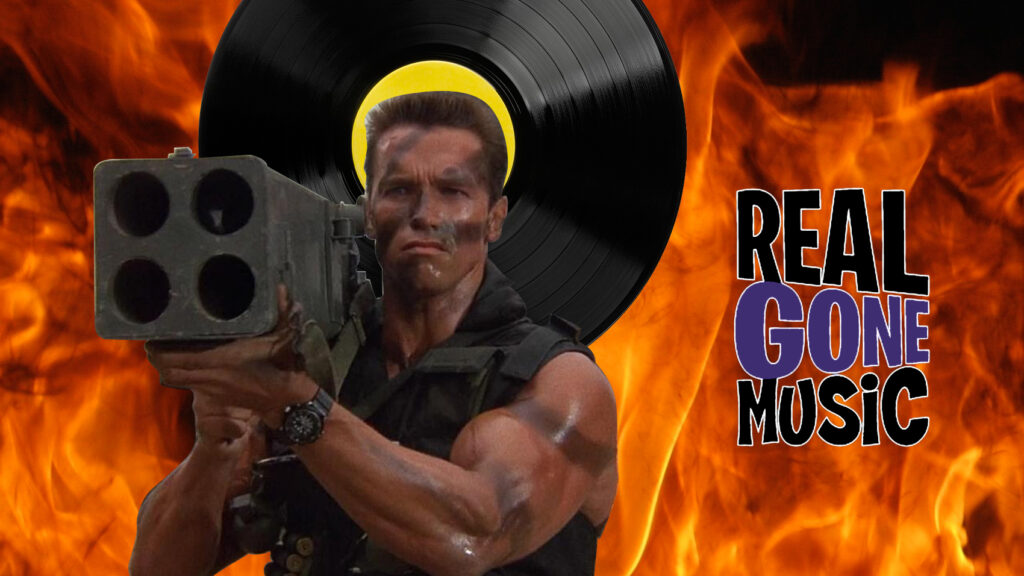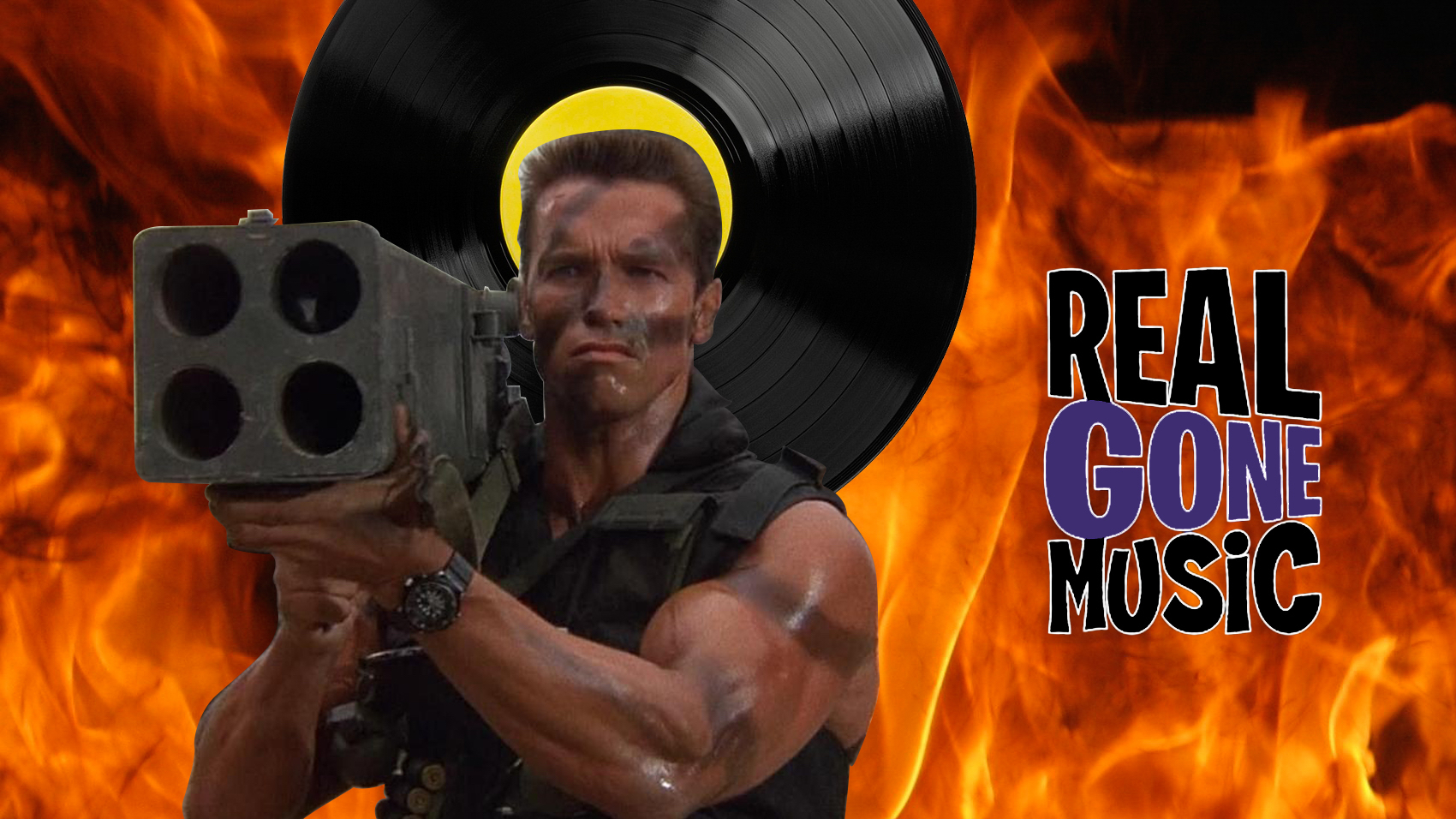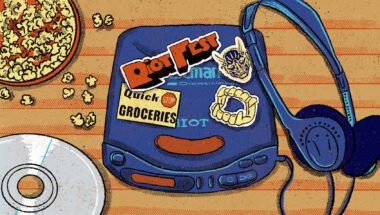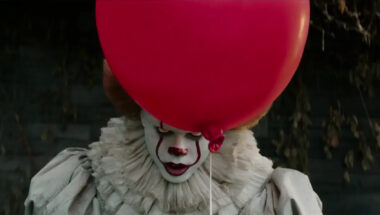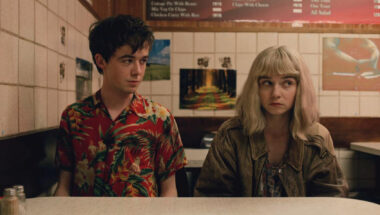In 2011, Gordon Anderson and Gabby Castellana pooled their 35 years of music-reissuing experience as the respective founders of Collectors’ Choice Music and Hep Cat Records & Distribution to create Real Gone Music, a reissue label dedicated to ace production values, eclectic sounds, and one of the most rigorous schedules in the game (about 10 releases a month is pretty par for the course). In recent times, Real Gone has delved into the deluxe reissue of film soundtracks, a market which has since exploded.
Many of the titles Real Gone are currently putting out never saw vinyl release in their day, and unlike other labels, they eschew genre focus and pull from all over the map: April, for instance, finds the label reissuing James Horner’s nutso score to Commando, the Courtney Love-helmed alt-rock barrage of Tank Girl, the cosmopolitan jazziness of Something’s Gotta Give, and even a collection of the bumpers and incidental music from the Netflix Mystery Science Theater 3000 reboot. We got Anderson on the horn for a few minutes to talk shop, and to figure out what makes a reissue label tick (we edited out the part where the interviewer couldn’t stop babbling about how much he appreciates Real Gone’s Hackamore Brick reissue).
RIOT FEST: The market for soundtrack LPs has kind of ballooned in the last few years. Aside from having the good sense to strike when the iron is hot, what has drawn Real Gone to dip its collective toe into the market?
Gordon Anderson: I wish I could take credit for it, as a guru guiding all our efforts, but I have to point to one of my staff members, Jeremy Sobotor. I’ve been reissuing music for about 25 years, God help me, and even with the label I ran before this, Collector’s Choice Music, I was always aware that soundtrack collectors are a completely different breed. They’re a really distinct group of people, and even within that collector community, there are subcultures: some people are really into the score and go by composer, some people prefer the more various artists, song-based albums, and so on.
We started out as being one of the more CD-centric reissue labels out there, but we saw that the marketplace was changing, and Jeremy was really the one who alerted us to it. What really opened our eyes, though, is when we did our first soundtrack on vinyl, Return of the Living Dead, and it was just a monster. We announced it, and we were sold out in pre-orders in three days, six weeks before it was even out! Now, we’ve got Tank Girl coming, which is another one it looks like we might have under-manufactured.
I confess that it’s partly just crass commercialism on our part, but we also try to make everything good quality, with good packaging and all that. Soundtrack collectors are a discerning audience, and we can’t put out an inferior product and expect it to do well.
How often would you say you have a personal, emotional stake in getting an album pressed on wax?
It’s hard to answer that, because once I get into it, I always have an emotional stake. I get enthusiastic about every project we do, because once you start getting down there and listening to the test pressing and making the packaging—which, with soundtracks in particular, is often created from scratch, since a lot of them haven’t come out on LP before—you can’t help but get invested. With soundtracks in particular, though, about half of them have been from movies I personally really dug, and the rest have just kind of been things that we thought were just a smart move, based on our set of criteria.
I notice a lot of your reissue choices, both in general and with soundtracks in particular, come somewhat out of left field, everything from Debby Boone to Ornette Coleman to (my personal favorite cult rock band) Hackamore Brick. How often are the rights holders surprised when you propose doing a vinyl reissue of something that they’ve let fall out of print for a long time?
Not that often these days! So many labels are out there doing it, people tend to take it in stride. Obviously, they’re excited about it, because it’s a significant chunk of change for them, since vinyl is a more expensive product!
I’m sure it varies wildly, but what’s the closest thing to your standard procedure for securing licensing and all that when you decide to do a reissue?
I have a feeling it’ll come as no surprise to you that soundtrack licensing is probably the most complicated licensing that we do, but it varies. If it’s come out on vinyl before, you can often just deal with the record label that put it out originally, but that’s the exception. More often, either you have to get approval from both the film studio and the record label: you’re licensing from the record label, but you have to get artwork approval from the film studio, and if it hasn’t come out on LP before, you have to get production stills and things like that. It’s just a whole other process.
One of the issues with this vinyl boom is that the infrastructure for this on the film studio side is really not there. In fact, I’ve had one studio that we’re working with on several projects tell me that they’re not taking new clients, just because they’re overwhelmed with the clients they have. It’s a side business for them, it’s not their focus, so that makes putting out a soundtrack a lengthy, sometimes painful process from conception to completion.
Are there any Real Gone dream projects that are “the one that got away”? As in, a project that is irredeemably doomed at this point?
There’s one that I totally fucked up on early on. We had the Fight Club soundtrack before Mondo ended up doing it, but the pricing was so outlandish. It was the early days before we were really that into the soundtrack game, so we let it go. The next thing I know, Mondo turns around and does this great package and sells a ton. They do great work, and more power to ’em, they were smarter than me. I never should have let that one go!
That’s the other thing about the soundtrack game: it tends to be a bit expensive, because there are two companies that are getting royalties, a double dip. The royalties for Fight Club were beyond belief, so I felt like we’d be in SERIOUS trouble if it flopped. So, I let it go, but if I could do it again, I would absolutely do it. Great soundtrack, great film.
Speaking of great films: y’all are doing the Commando soundtrack in April, which was a big part of my personal impetus for doing this interview. Most of my listening habits involve the outer limits of free jazz, noise, outsider music, etc. In short, I’m not a conservative listener, and with that said, I think parts of James Horner’s score to that film are just completely bonkers. Do you think that reissuing a score like that on vinyl might help the music itself find a new, unexpected audience among people who maybe haven’t seen or paid attention to that classic film?
I hope so, because I agree with you. I think it’s a really brilliant score. The way he incorporates South American motifs along with the more sweeping, traditional soundtrack elements is great. The question I’ve always had is this, though: maybe we’re catering to a particular audience by doing these collectible, colored vinyl runs, but are people actually listening? Is it like a coffee table book, or are they actually listening to it? I don’t know the answer to that. One would hope they are, but sometimes I’m not sure. A lot of the vinyl buying audience is a younger audience, so one wonders if they just see the record and decide they want a really cool curio to express their love of a particular movie. Since a lot of these soundtrack albums coming out have art and special packaging exclusive to their release—and we did that, too, for Predator and True Romance, for example—that would kind of make sense.
I’m sure there are as many answers to that question as there are people. Don’t get me wrong, Commando is a fun movie, but I’m more into it for the score itself. Though I’m pretty sure I’m the exception to the rule…
Well, sure. I hope I don’t come off too mercenary about it, either.
